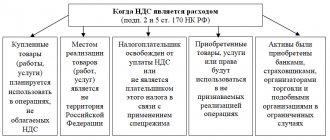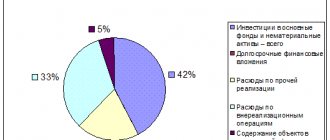Is draft beer an excisable product or not?
The following are recognized as excisable goods:
- ethyl alcohol from all types of raw materials, with the exception of cognac alcohol;
- alcohol-containing products (solutions, emulsions, suspensions and other types of products in liquid form) with a volume fraction of ethyl alcohol of more than 9%.
- alcoholic products (drinking alcohol, vodka, liqueurs, cognacs, wine and other food products with a volume fraction of ethyl alcohol of more than 1.5%, except for wine materials);
- beer;
- tobacco products;
- passenger cars and motorcycles with an engine power exceeding 112.5 kW (150 hp);
- motor gasoline;
- diesel fuel;
- motor oils for diesel and (or) carburetor (injection) engines;
- straight-run gasoline - gasoline fractions obtained from the processing of oil, gas condensate, associated petroleum gas, natural gas, oil shale, coal and other raw materials, as well as products of their processing, except for motor gasoline and petrochemical products.
The following are not considered as excisable goods:
- medicinal, therapeutic and prophylactic, diagnostic products included in the State Register of Medicines and Medical Products, medicinal, therapeutic and prophylactic products manufactured by pharmacy organizations, bottled in containers in accordance with the requirements of state standards;
- veterinary drugs included in the State Register of Registered Veterinary Drugs developed for use in animal husbandry on the territory of the Russian Federation, bottled in containers of no more than 100 ml;
- perfumery and cosmetic products that have passed state registration, bottled in containers of no more than 100 ml with a volume fraction of ethyl alcohol up to 80% inclusive and (or) perfumery and cosmetic products with a volume fraction of ethyl alcohol up to 90% inclusive with a spray bottle on the bottle, bottled in containers no more than 100 ml;
- waste subject to further processing and (or) use for technical purposes, generated during the production of ethyl alcohol from food raw materials, vodka, liquor products, complying with regulatory documentation approved by the federal executive body;
What goods are excisable?
The group of excisable goods in the Russian Federation is constantly changing. However, there are a number of products that have always been included in it and will not leave in the near future. These goods are excisable not only in our country, but also in almost all countries of the world. The list of such goods is established in Art. 181 of the Tax Code of the Russian Federation, according to which excisable goods include:
- Ethanol.
- Alcohol-containing goods in which the share of ethyl alcohol is more than 9%, with the exception of alcoholic products. Also exceptions in this case include:
- medicines;
- veterinary products bottled in containers not exceeding 100 ml in volume;
- perfumery and cosmetic products, the volume of which does not exceed 100 ml, and the proportion of alcohol is 80 and 90%, with a spray bottle, as well as with the proportion of ethyl alcohol up to 90% and a volume not exceeding 3 ml;
- waste from the production of ethyl alcohol, as well as alcoholic beverages, subject to their further processing and use for technical purposes;
- wine materials, wine, fruit and beer wort.
- Alcohol products.
- Tobacco products.
- Cars.
- Motorcycles with power exceeding 112.5 kW (150 hp).
- Automotive gasoline.
- Diesel fuel.
- Motor oils for injection and diesel engines.
- Straight-run gasoline.
- Aviation kerosene.
- Orthoxylene, paraxylene, benzene.
- Other mixtures of hydrocarbons in a liquid state.
- Natural gas.
- E-Sigs.
- Liquids for electronic cigarettes.
- Tobacco and products made from it, consumed by heating.
The last 3 items have been included in this list since January 10, 2017 (Clause 6, Article 2 of the Law “On Amendments...” dated November 30, 2016 No. 401-FZ).
Read about what changes are expected in excise tax rates in the coming years in the material “Changes to excise tax rates for 2018-2020 have been adopted.”
Is draft beer an excisable product or not?
Tax Code of the Russian Federation. Calculation of rates and amount It is not difficult to calculate the amount of excise tax. To do this, you need to have information about the strength of beer, its quantity, as well as rates for this category in the current period of time. Beer has three main types of strength:
- The proportion of ethyl alcohol is below 0.5% (non-alcoholic);
- The proportion of ethyl alcohol is from 0.5 to 8.6%;
- The proportion of ethyl alcohol is above 8.6%.
In the second reading of 2020, the State Duma adopted a bill amending excise rates for certain categories of goods for the period 2017-2019; beer drinks were also subject to a rate increase. Let's compare prices over recent years.
Dimensions
The current excise tax rate is as follows.
| Object name | Rate, rub. |
| Beer, the strength of which does not exceed 0.5% | 0 |
| Beer containing ethyl alcohol in a volume of 0.5 to 8.6% | 21 |
| Alcoholic drinks made on the basis of beer with a strength of 0.5 to 8.6% | 18 for 1 liter |
| Beer containing ethanol from 8.6% | 39 |
The Russian market consists of 50% imported beer.
This happened after the Government of the Russian Federation significantly increased the excise tax on domestic goods. Due to such manipulations by authorized bodies, the price difference between Russian and foreign manufactured goods has been reduced to a minimum.
The price of the most expensive varieties of domestically produced beer is similar to the import of inexpensive beer varieties from abroad. The excise tax on beer imported into the state is withdrawn from payers by the tax inspectorate within the framework of customs.
From imported goods that are required to be marked with excise taxes of the Russian Federation, tax is withdrawn in accordance with current legislation, in particular Article 186 of the Tax Code of the Russian Federation. It is worth noting that the rule also applies to goods imported from the countries of the Customs Union.
In a situation where a product is imported from one state to another (between members of the Customs Union), excise tax is payable by the country that imports the beer.
The amount of excise tax can be determined using the formula:
NB – tax base, Sak.n – excise tax rate, expressed in price per liter.
In the process of determining the amount of excise tax, the percentage of alcohol content is taken into account in accordance with GOST regulatory documents, on the basis of which beer is produced.
State standards regulate the issue of the minimum percentage of alcohol content in beer, but there is no maximum volume.
When producing several types of beer, it is recommended to keep several separate records. It is imperative to take into account that the amount of excise tax is taken per 1 liter of product, and not the ethanol content in it.
Features of calculation and payment of excise duty on beer in 2020
Attention
Excise tax is one of the types of taxes that is levied on legal entities or individuals who carry out transactions with one or more types of goods that fall under this type of tax, for example, the movement of goods across the border into the territory of the Russian Federation. The excise tax applies to such types of goods as strong alcoholic beverages, tobacco products, oil, gasoline, and natural gas. Dear readers! Our articles talk about typical ways to resolve legal issues, but each case is unique.
If you want to find out how to solve your specific problem, please contact the online consultant form on the right. Or call us at (Moscow)8 (St. Petersburg)8 ext.
Excise tax on beer
Consequently, in the event of a shortage of products caused by broken containers or other reasons not related to the norms of natural loss, an excise tax is calculated on the volume of missing beer. The amount of excise tax on taxable transactions with beer is calculated using the formula A = NB x C
- A is the amount of excise tax;
- NB - tax base, defined as the volume of sold, transferred, imported products in liters;
- C is the excise tax rate in rubles and kopecks per 1 liter of beer.
When calculating the excise tax on beer, the normative (standardized) content of ethyl alcohol provided for by the technical requirements of the current GOST regulating the production of beer is taken into account (GOST R 51174-98). This standard sets a minimum level of alcohol content in beer, but does not limit the maximum limit. Regarding beer Art. 193 of the Tax Code of the Russian Federation provides for three excise tax rates.
How to calculate
The amount of excise tax for excisable groups of products, in relation to which the legislation of the Russian Federation provides for fixed or ad valorem rates, is calculated using the formula:
excise tax amount = Nb. * Nst., where
Nb.
– established tax base in domestic or foreign currency,
Nst.
– tax rate, which can be expressed as a percentage or in domestic currency for each unit of goods.
The amount of excise tax for excisable groups of goods, in relation to which a combined tax rate is provided, is determined by the formula:
excise tax amount = Nb. * Nst. + Pdol. * Mtsen., where
Nb.
– established tax base in kind,
Nst.
– tax rate expressed exclusively in domestic currency for each unit of goods,
Pdol.
– percentage share,
Mtsen.
– the maximum retail price of excisable products.
The total excise tax is determined by summing up all excise taxes on each type of product that is subject to taxation at the end of the tax period.
Excise goods
Excise taxes are a type of indirect taxes. They are levied on payers who produce and sell certain categories of products. Excise taxes are included in the price of the goods and, accordingly, are passed on to the end consumer. Their size largely determines the cost of production and affects demand.
Let us next consider which goods are considered excisable. General principles A special feature of excise taxes is the fact that they apply only to certain goods. There are several principles by which products falling under them are determined.
Important
First of all, it should be noted that excise taxes are not imposed on essential products. The main purpose of the payment is to ensure budget revenues from excess profits obtained from the production of highly profitable products. It mainly includes tobacco and alcohol products, as well as petroleum products.
Is beer an excise product or not?
For this reason, it is possible to limit oneself solely to paying indirect taxes when selling products or transferring them. The sales date is usually considered to be the day when the goods have already been shipped by the manufacturer.
If the products are transferred to third parties for safekeeping, then no obligation to pay excise duty can arise.
Article 195 of the Tax Code of the Russian Federation clearly defines: when a shortage of excisable goods is identified, the date of sale is defined as the day on which this fact was identified. Such a rule cannot apply to situations in which there is a shortage due to natural loss. In simple words, when the chemical and biological composition of a product is subject to change, and the norm was approved by employees of authorized bodies.
Excise goods are... list of excisable goods
Among them:
- Contract (its certified copy) with a foreign buyer for supply. If the shipment is made under a commission agreement, guarantee, or under an agency agreement, they are presented.
- Payment documents, bank statement (or copies thereof). These papers confirm the actual receipt of profit from the sale of products to a foreign counterparty to the payer’s account in a domestic bank or account of a commission agent, agent, or attorney.
- Customs cargo declaration (its copy). It must contain the marks of the Russian Federal Customs Service, which produced the products in the export mode, or in the region of whose activity there is a checkpoint through which the products were exported abroad of Russia.
- Copies of shipping/transport or other documents.
Should a seller of draft beer pay excise taxes?
- Ethyl alcohol produced from any type of raw material. The exception is cognac alcohol
- Products containing alcohol. These include emulsions, solutions, suspensions, etc. The alcohol concentration in them is more than 9%.
- Alcohol products.
The following goods are considered excisable: drinking alcohol, cognac, liquor products, vodka, wine, and other drinks in which the alcohol concentration is more than 1.5%. The exception is wine materials.
In addition, the following goods are considered excisable:
- Beer.
- Tobacco products.
- Passenger cars, motorcycles. The motor power of the latter should be more than 112.5 kW.
- Motor oils for engines.
Diesel fuel and gasoline (including straight-run gasoline) are also recognized as excisable goods.
The company purchased beer in beer barrels, and then began bottling it into containers. In the future, it is resold to stores, which means that excise duty must be charged.
When are excise taxes charged?
When importing excisable goods, as well as when selling and transferring excisable goods produced on the territory of the Russian Federation.
The sale of excisable goods is a transfer of ownership on a paid or gratuitous basis, including the use of excisable products for payment in kind. In this case, excise taxes are charged only in the case when ownership passes directly from the manufacturer of excisable goods (for example, from the manufacturer to the wholesaler). For further resale (for example, when shipped from a wholesaler to a retail chain), excise taxes are not required.
Also, excise taxes must be paid on the sale of confiscated and ownerless excisable goods, including excisable goods received by court decision.
The transfer of excisable goods is an operation in which there is no transfer of ownership. In this case, excise taxes are charged only if excisable goods are transferred directly by their manufacturer. If the product is transferred by the person who bought it in finished form, there is no need to charge excise taxes.
Thus, excise taxes are imposed on the transfer of manufactured products for processing on a toll basis and the shipment of excisable goods made from toll raw materials. In addition, excise taxes are charged upon the transfer of manufactured goods for one’s own needs, to the authorized capital or to the founder upon the latter’s disposal.
In general, excise taxes cover the movement of products within a company for the further production of non-excisable goods, and since 2011 - the “internal” transfer of ethyl and cognac alcohol for the production of alcohol or other excisable products. The internal movement of created excisable goods to the unit involved in their retail sale is also subject to excise taxes.
Finally, excise taxes are charged when denatured ethyl alcohol and straight-run gasoline are obtained by organizations that have the appropriate certificates.
When moving excisable goods within the manufacturing company, if the purpose of the movement is the production of other excisable goods. There is an exception here: the transfer of alcohol for the production of alcohol and other alcohol-containing excisable products is not exempt from excise taxes.
In addition, excise taxes are not charged to exporters who have provided certain documents to the tax office.
To obtain an exemption on any of the above grounds, it is necessary to keep separate records of transactions subject to and not subject to excise duties.
Article 181. Excise goods
According to Article 200 of the Tax Code of the Russian Federation, tax deductions include the amount of excise taxes that are presented by the manufacturer and paid by the payer in the process of purchasing excisable goods for their further use as raw materials necessary in the manufacture of excisable products (goods already paid when importing goods into the state are also taken into account). customs).
The above tax deductions can be made only if the excise rate on excisable products used in the future in the form of raw materials and the excise rate on the manufacture of excisable goods are determined in the calculation process by the same unit of measurement of the tax base.
Types of bets and calculation
The legislation of the Russian Federation provides for:
- specific rate
- determined by charging per 1 unit of goods in kind; - ad valorem rate
- determined as a percentage of the total volume of imported products; - combined rate
– determined by applying several rates simultaneously.
One shipment imported into the Russian Federation may contain goods with different excise rates. In such a situation, the legislation of the Russian Federation provides for different rates for a certain type of product.
A similar basis for determination is also used in the process of payment for products that entered the territory of the Russian Federation in advance for the purpose of processing, and were then exported back.
The amount of excise tax in the determination process implies the value that was obtained as a result of summing up the excise tax for each individual group of products subject to taxation.
Is draft beer an excisable product or not?
Article No. 79 of the Tax Code of the Russian Federation includes a list of the following excise tax payers: Payer Interpretation Organization Carrying out activities with excisable goods Individual entrepreneurs Carrying out operations related to the production or sale of beer Citizens Carrying out operations related to the transportation of goods through customs The adopted GOST equates the process of bottling beer products for production, therefore excise taxes are established on this. In addition, according to Art. 182 of the Tax Code of the Russian Federation, the bottling of beer on the territory of the Russian Federation is equated to its production, since this relates to the production process in accordance with the regulatory documents adopted by the Government of the Russian Federation. An organization that carries out its labor activities related to the bottling of beer products is classified as a regular excise tax payer.
- Excise payers
- Excise goods
Excise tax payers ^To the top of page Excise tax payers are persons recognized as taxpayers in connection with the movement of goods across the customs border of the Russian Federation, determined in accordance with the Customs Code of the Russian Federation (Article 179 of the Tax Code of the Russian Federation). Excise goods ^To the top of the page The following are recognized as excisable goods (Article 181 of the Tax Code of the Russian Federation):
- ethyl alcohol produced from food or non-food raw materials, including denatured ethyl alcohol, raw alcohol, wine, grape, fruit, cognac, Calvados, whiskey distillates (hereinafter also in this chapter - ethyl alcohol);
- alcohol-containing products (solutions, emulsions, suspensions and other types of products in liquid form) with a volume fraction of ethyl alcohol of more than 9%, with the exception of alcoholic products specified in paragraphs.
Category: Uncategorized
Payers and objects
The objects of excise taxation are considered to be transactions
:
- sale throughout the state of manufactured excisable products, including the subject of pledge;
- transfer of products within the Russian Federation for further personal use;
- transfer across the territory of the Russian Federation of manufactured excisable goods to a cooperative share agreement, and so on;
- transfer of manufactured goods to participants, if they have left the company or company, within the state, which also applies to goods manufactured under the terms of the agreement, which were transferred to the participants as shared property;
- sale by legal entities of excisable products that have been confiscated or are ownerless according to a decision of a judicial authority.
According to current legislation, the reason for a fine may be:
- underestimation of the real tax base;
- other types of illegal actions or, on the contrary, inactions.
Regardless of the reason for which the offense arose, the fine for non-payment of excise tax is 20%
from the value of the arrears. In addition, it must be remembered that paying off penalties does not exempt you from paying excise tax.
If the taxpayer’s offense was recognized by the tax inspectorate as intentional, the fine increases to 40%
.
In addition to a fine, the laws of the Russian Federation also provide for criminal liability.
. Initiating a criminal case is possible only if there has been a failure to pay taxes on a large scale or the taxpayers have clear signs of a crime:
- failure to submit a declaration within the deadlines established by law, which became the reason for non-payment of excise tax;
- malicious evasion of excise tax due to personal interests;
- deliberate concealment by the taxpayer of property on which excise tax must be paid.
For this reason, you should always ensure that excise tax is paid on time to avoid further misunderstandings.
Additional information is presented in this video.
The article will explain what is the validity period of the online cash register fiscal drive key, which goods are excisable, and how long it takes to buy a fiscal drive for an online cash register.
Question:
Individual entrepreneur on UTII, with hired workers, retail sale of beer. Is beer an excisable product and for how long should I buy a fiscal storage device for an online cash register?
Answer:
Yes, beer is an excisable product (subclause 3, clause 1, article 181 of the Tax Code of the Russian Federation).
The validity period of the fiscal drive must be at least 13 months from the date of registration ().
Analysis of barriers to entry into the market.
Marketing » For micro breweries » Analysis of barriers to entry into the market.
Page 2
Beer is an excisable product, and this is an additional tax equal to fifteen percent. But the administrations of some regions and republics follow the Law “On state regulation of the production of ethyl alcohol and alcoholic products,” which states that any drinks containing more than 1.5 percent alcohol are subject to licensing and are subject to a corresponding fee of about 350 - 400 rubles per liter.
At the same time, there is another document, dated April 1995 and signed by the heads of the Ministry of Finance, the State Inspectorate for Ensuring the State Monopoly on Alcohol Products under the Government of the Russian Federation and the State Tax Service - “The procedure for paying a fee for an inspection for compliance with the requirements for production, bottling , storage and wholesale of alcoholic beverages." The greatest interest in it is caused by a short footnote indicating that “other alcoholic beverages include all drinks (except beer) with a volume fraction of ethyl alcohol of more than 1.5 percent.” That is, beer has its own special status, and it cannot be put on a par with the same canned gin and tonic.
In addition, you will need to obtain a hygiene certificate for the products from the local sanitary and epidemiological surveillance center. This document will be issued to you based on the results of a hygienic assessment of products and an examination of regulatory documentation defining the requirements for products, their production and use.
Hygienic assessment of products is the determination of the possible adverse effects of products on human health, the establishment of acceptable areas and conditions for use of products, as well as the formation of requirements for production processes: storage, transportation, use and disposal, ensuring their safety for humans. Hygienic assessment of products is carried out by institutions of the state sanitary and epidemiological service based on the results of their own research, on contractual terms or based on an assessment of the results of research conducted by third-party organizations accredited for these purposes.
The period for reviewing materials when issuing a hygiene certificate is 1 month. When sending materials for examination to specialized organizations, the review period may be increased to two months. The hygiene certificate is valid throughout the Russian Federation, unless otherwise stated in it. If you do not agree with the decision of the territorial center of the State Sanitary and Epidemiological Surveillance to refuse to issue a hygiene certificate, this decision can be appealed to the State Committee for Sanitary and Epidemiological Supervision of the Russian Federation.
· Russian legislation can be identified as one of the barriers to entry into the market:
The financial situation of the brewing industry now largely depends on pricing and tax policies. The technological process of brewing allows you to flexibly change production volumes, but the volume of beer output in recent years has been largely dictated not by the market situation, but by frequent changes in the tax regime.
A positive aspect was the official recognition in the Russian Federation in 1996.
What is the validity period of the online cash register fiscal drive key?
Each online cash register must be equipped with a fiscal drive. This device encrypts and protects cash register information, records and stores fiscal data. In essence, this is a secure electronic cash register (EKLZ), but with additional functions. Fiscal drives that can be installed in online cash registers are included in a special register.
The fiscal accumulator (FN) has a fiscal attribute key. Its validity period is limited. That is, the fiscal drive, like the ECLZ, must be changed periodically. The law establishes only the minimum validity period of the key. The maximum period is not limited - it depends on the drive model. For clarity, the minimum validity periods of such keys are given in the table.*
| KKT user category | Drive expiration date | Base |
| Organizations and entrepreneurs that provide services or apply a special regime (STS, Unified Agricultural Tax, PSN, UTII)* | At least 36 months from the date of registration of the cash register | Paragraph 1 clause 6 art. 4.1 of the Law of May 22, 2003 No. 54-FZ |
| At least 13 months from the date of registration of the cash register, if:* You conduct seasonal activities; — combine special mode with OSNO; — you use a cash register system that does not transmit fiscal documents to the tax office through the fiscal data operator; - trade in excisable goods | Paragraph 2 clause 6 art. 4.1 of the Law of May 22, 2003 No. 54-FZ | |
| Organizations and entrepreneurs on OSNO and payment agents | At least 13 months from the date of registration of the cash register |
Important!
For the use of a cash register with a fiscal accumulator for 13 months in cases where there is an obligation to use a fiscal accumulator for 36 months, administrative liability is provided: a warning or a fine in the amount of 1,500 to 3,000 rubles. - for officials and individual entrepreneurs and from 5,000 to 10,000 rubles. - for legal entities (Part 4 of Article 14.5 of the Administrative Code, letter of the Federal Tax Service dated February 12, 2018 No. ED-4-20/2631).
However, administrative liability can be brought only if there is guilt, in the absence of irremovable doubts about the guilt of the person (Part, Article 1.5 of the Administrative Code). There will be no penalty for installing a fiscal drive with a different validity period if, for example, organizations and entrepreneurs who are ordered to install drives with a validity period of 36 months in cash registers, due to a shortage of the necessary devices, use drives for 13 months, and until the end of their useful life. According to the Federal Tax Service, there is no fault of cash register users in this case (letter of the Federal Tax Service dated May 23, 2017 No. ED-4-20/9679).
Please note: from January 1, 2020, the format of fiscal documents version 1.0 is no longer valid. From this date, you need to use fiscal document formats version 1.05 or 1.1 in CCP. The Federal Tax Service clarified that when switching from version 1.0 to 1.05, there will be no need to change the fiscal drive. However, at present such a transition without replacing the fiscal drive is not legally prescribed. But the corresponding bill has already been submitted for consideration. About this - in the letter of the Federal Tax Service dated February 12, 2018 No. ED-4-20/2586.








